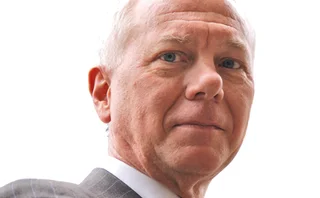
Seesaw Supervision
Thai exchange controls imposed late last year and due for retraction in March may have achieved their aim of halting the rapid appreciation of the baht - at least temporarily. But at what cost to the country's reputation? By Christopher Jeffery

The initial response to the bloodless military coup in Thailand in September last year that ousted prime minister Thaksin Shinawatra was reasonably muted. Perhaps, in part, that reflected the positive sentiment pervading the financial markets at the time.Things didn't look too bad. The military swiftly introduced an interim government - which was ostensibly approved by king Bhumibol Adulyadej - and promised to hold a referendum to approve a new constitution, along with free and fair elections by
Only users who have a paid subscription or are part of a corporate subscription are able to print or copy content.
To access these options, along with all other subscription benefits, please contact info@risk.net or view our subscription options here: http://subscriptions.risk.net/subscribe
You are currently unable to print this content. Please contact info@risk.net to find out more.
You are currently unable to copy this content. Please contact info@risk.net to find out more.
Copyright Infopro Digital Limited. All rights reserved.
As outlined in our terms and conditions, https://www.infopro-digital.com/terms-and-conditions/subscriptions/ (point 2.4), printing is limited to a single copy.
If you would like to purchase additional rights please email info@risk.net
Copyright Infopro Digital Limited. All rights reserved.
You may share this content using our article tools. As outlined in our terms and conditions, https://www.infopro-digital.com/terms-and-conditions/subscriptions/ (clause 2.4), an Authorised User may only make one copy of the materials for their own personal use. You must also comply with the restrictions in clause 2.5.
If you would like to purchase additional rights please email info@risk.net
More on Economics
Webinar – Nowcasting the US economy
Join CME Group Chief Economist, Blu Putnam, as he shares insights using alternative data and nowcasting to monitor developments in the US economy.
Fed Funds Futures in a Post-ZIRP World
As the FOMC returns to more active management of its key target rate, Federal Funds futures have experienced dramatic growth.
Challenging economic pessimism: an optimistic note
A contrarian, upbeat view of the long-term economic outlook
Economists, like hedge fund traders, need open minds
Economists, risk managers and traders must learn the lessons of crisis, says Kaminski
Fed wrong not to start QE tapering, says UBS economist
The surprise decision by the Federal Reserve last month not to scale back its quantitative easing programme will create more volatility, says economist
IMF's Blanchard warns Europe could drag world economy down
IMF chief economist says ‘three-speed’ global economy could be dangerous







